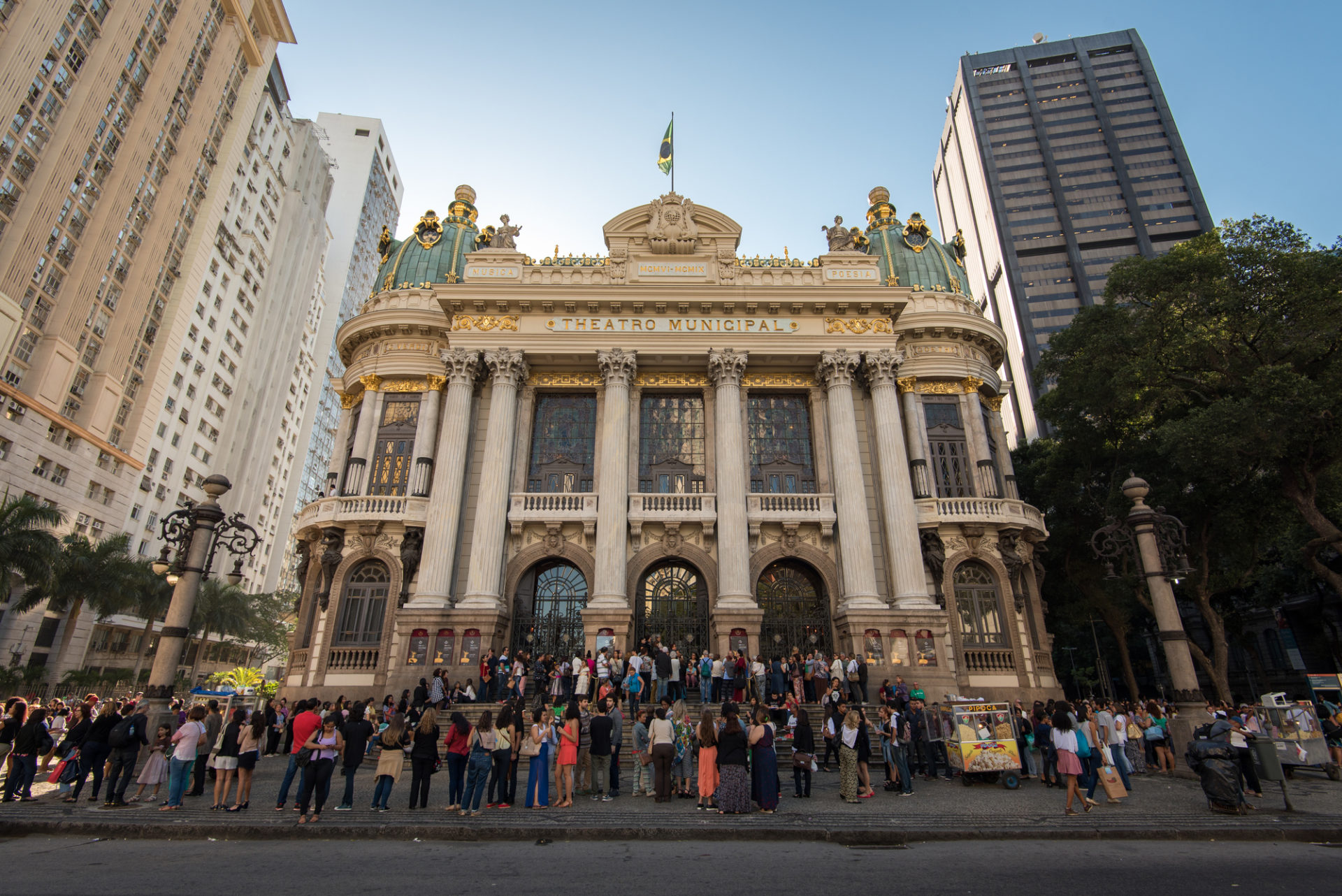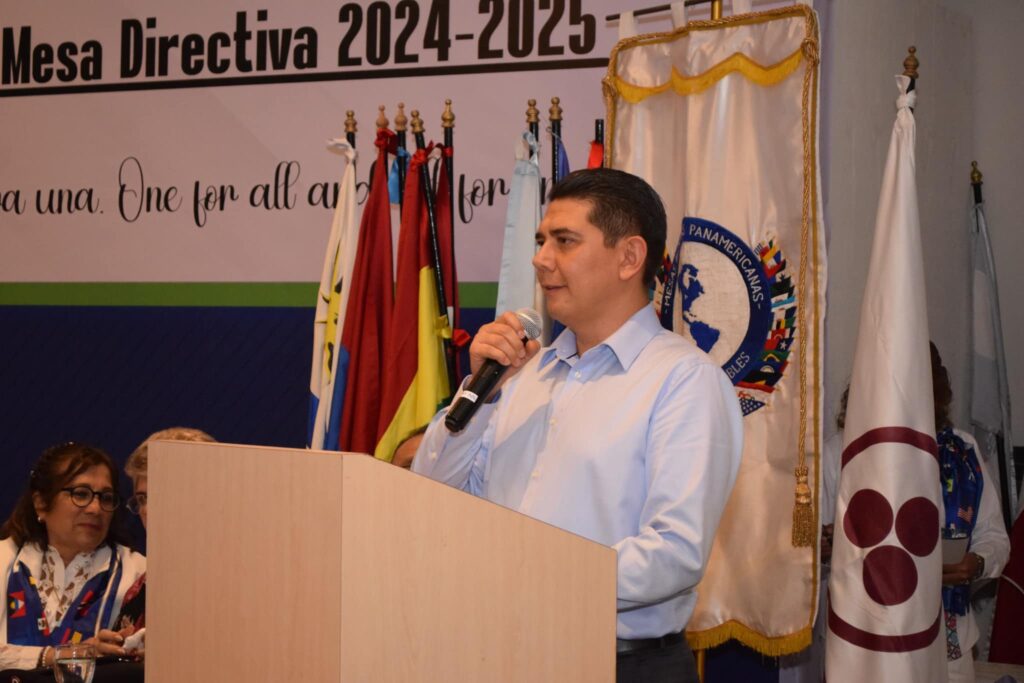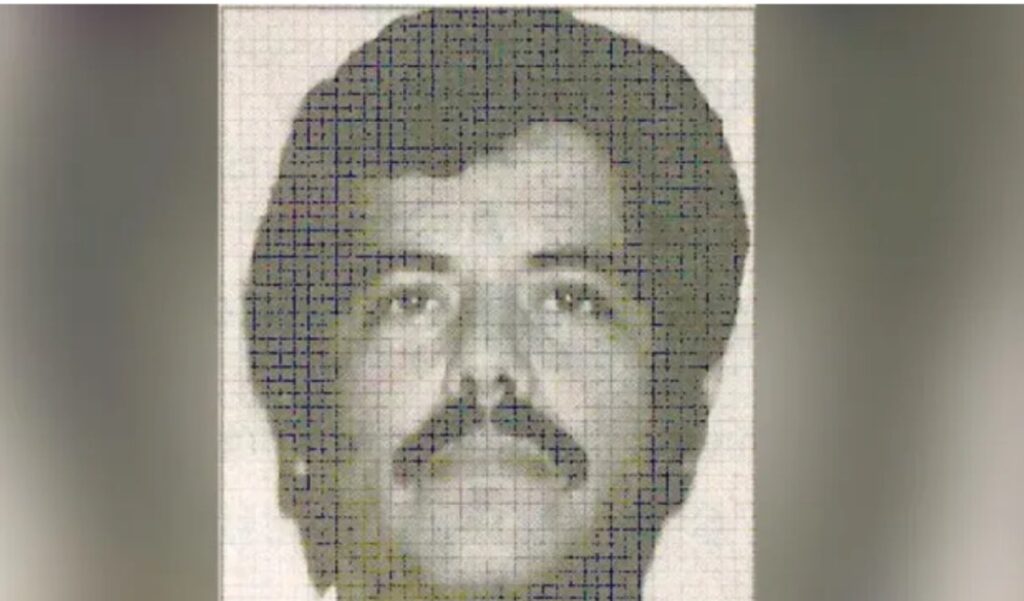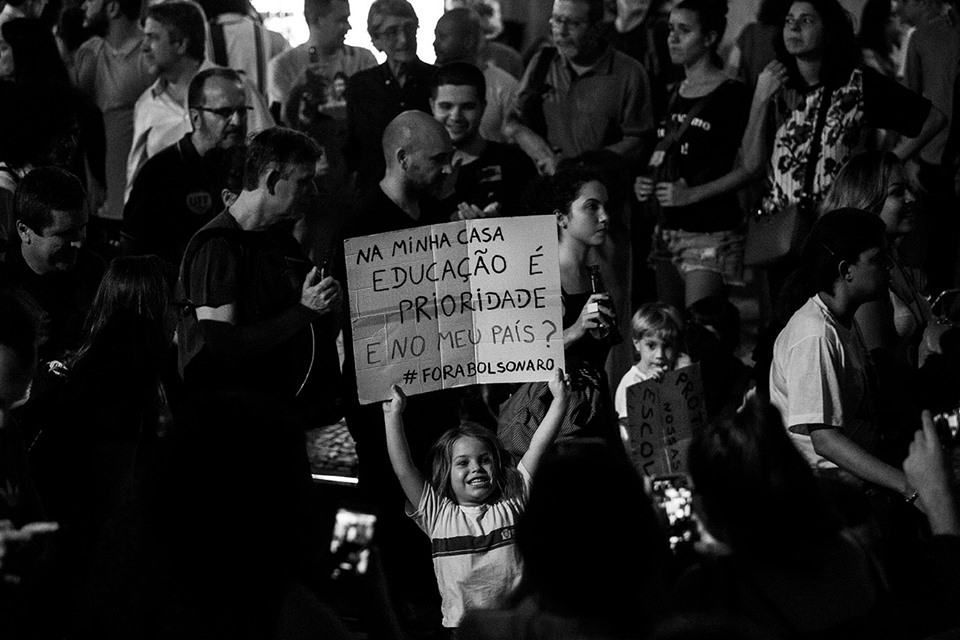When Roberto Alvim was hired by President Jair Bolsonaro as Brazil’s Special Secretary of Culture in November 2019, Bolsonaro asked him to create a culture that did not “destroy,” but rather “saved” Brazilian youth.
In a speech he published on social media on January 16, Alvim pledged to consider “the fatherland, family, bravery of [Brazilian] people, and their profound connection with God” when putting together public cultural policy.
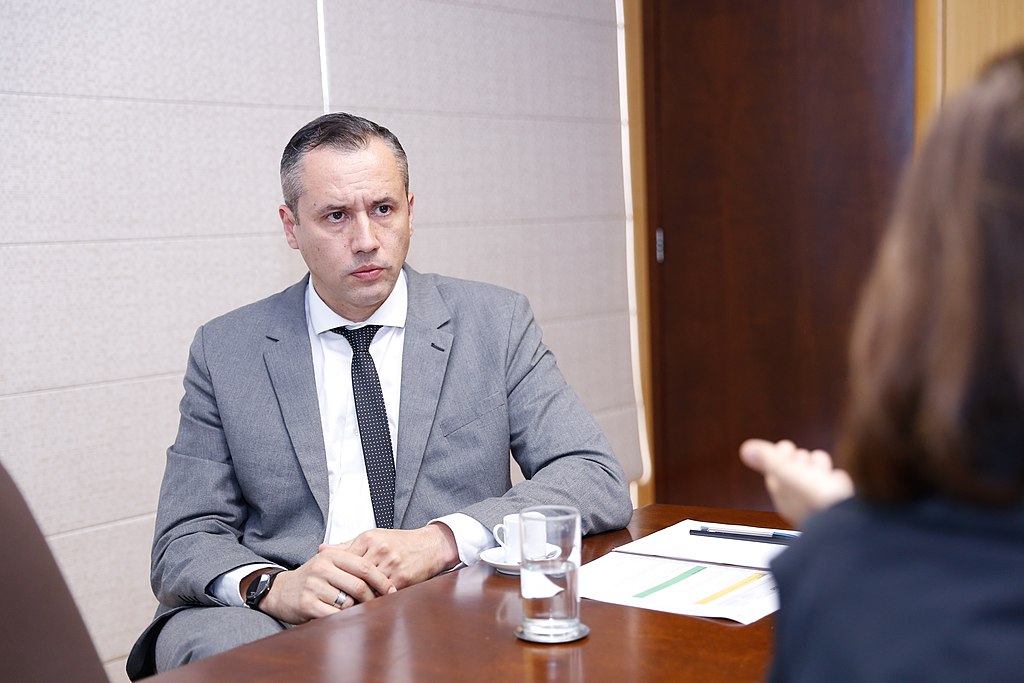
Alvim vowed that the art Brazil would produce under his leadership would be “heroic and national.” His use of these words, which echoed those of Adolf Hitler’s culture minister Joseph Gobbels, triggered a backlash that led to his resignation a few days later.
Despite losing his position in government, Alvim had already made his mark on cultural policy plans.
On one of his final days in government, he sat alongside President Bolsonaro to broadcast a Facebook Live. This broadcast outlined that public funding for Brazilian cultural projects would aim to “curate” them, but not censor them. This curation, they implied, would bring them in-line with the values Alvim outlined in his January speech, such as nationalism, family, and religion.
“Whoever wants to make a video, a film … you can do it, but not with public money. Do it with your own,” Bolsonaro said.
With this broadcast in mind, some cultural production companies in Brazil are thinking even more carefully about the content they produce, Helena Aragão, assistant editor at Brazilian newspaper O Globo’s cultural section Segundo Caderno, told Latin America Reports.
“There’s enormous concern that [censorship] will begin to take place,” she said, explaining how some companies are already shying away from pursuing more liberal project ideas for fear of losing government sponsorship. “I think it’s very likely that self-censorship is already taking place to some extent, but at this point it is difficult to prove,” added Aragão.
Despite the lack of hard evidence of censorship itself, there have been several suspensions of state-funded cultural projects — of an either liberal or political nature — since President Bolsonaro was elected.
In September 2019, ‘Abrazo’ — a mimed play about an imaginary dictatorship in which hugging is prohibited — was abruptly closed down by the state-funded bank Caixa Cultural, which was sponsoring its production in the northeastern city of Recife.
The reason? In the post-show discussion, the theater company in charge of the production mentioned politics, which could harm the bank’s reputation, Aragão explained.
A month before, in Rio, another state-sponsored play was suspended before it was even released. ‘Caranguejo overdrive’ was due to begin in October 2019.
In an official statement, the theater group responsible for production said “no technical justification” was given by the Banco do Brasil Cultural Center, responsible for the cancellation. Segundo Caderno’s Aragão suspects it was due to an improvised part of the play in which the actors were to comment on current affairs.
According to O Globo, in 2019 Bolsonaro’s government also tried to cancel a selection process for public funding for multiple TV series — four of which he publicly criticized — pursuing LGBT storylines. Although Bolsonaro cancelled the process, this was overturned by court decision. The funding was reinstated, but none of the series Bolsonaro had criticized ever received it.
At the end of last year, however, state attempts to censor Brazil’s cultural output managed to weave their way into non-state funded content.
In early December, Netflix released a privately-funded seasonal special by the Brazilian comedy group Porta dos Fundos, titled ‘The First Temptation of Christ.’ Immediately, a Rio de Janeiro state judge ordered that the show — which depicts Jesus as homosexual and shows Mary smoking marihuana — be taken down by Netflix.
Although the Brazilian Supreme Court overturned the judge’s decision, for Aragão, the motivation behind attempting to censor culture — whether it is public or privately-funded — is clear.
“It is directly linked to the conservative discourse ‘in the name of the Brazilian family,’” she said, explaining how this discourse — much of which is influenced by religious beliefs — has also made its way into other realms of government policy beyond culture, such as sexual health policy.
However, for leaders of the Evangelical Church — to which Bolsonaro belongs — the lines between religion and politics should not be blurred.
“No governor should prioritize a religious following,” Reverend Sergio de Oliveira, President of the Brazilian Association of Evangelical Churches told Latin America Reports.
“We must respect the wide-ranging beliefs that are present in this country,” De Oliveira responded, when asked about his personal reaction to the attempted censorship of the Porta dos Fundos show. “As an Evangelical leader I felt disrespect in terms of my faith … but as an individual, I understand that freedom of expression must remain,” he added.
For De Oliveira, the president’s behavior is “the opposite of Evangelical: supporting wars and violence with aggressive language.”
Although many Evangelicals voted for Bolsonaro to become the president of their country, believing he would be the solution to Brazil’s long-standing problems, De Oliveira points out that many have lost hope, as Brazil’s deep-rooted cracks still lie open.
“We cannot elect a president based on faith,” he said.
According to De Oliveira, Bolsonaro, who claims to “curate” Brazilian culture, partly in the name of his religion, is “far from being an Evangelical representative.”


